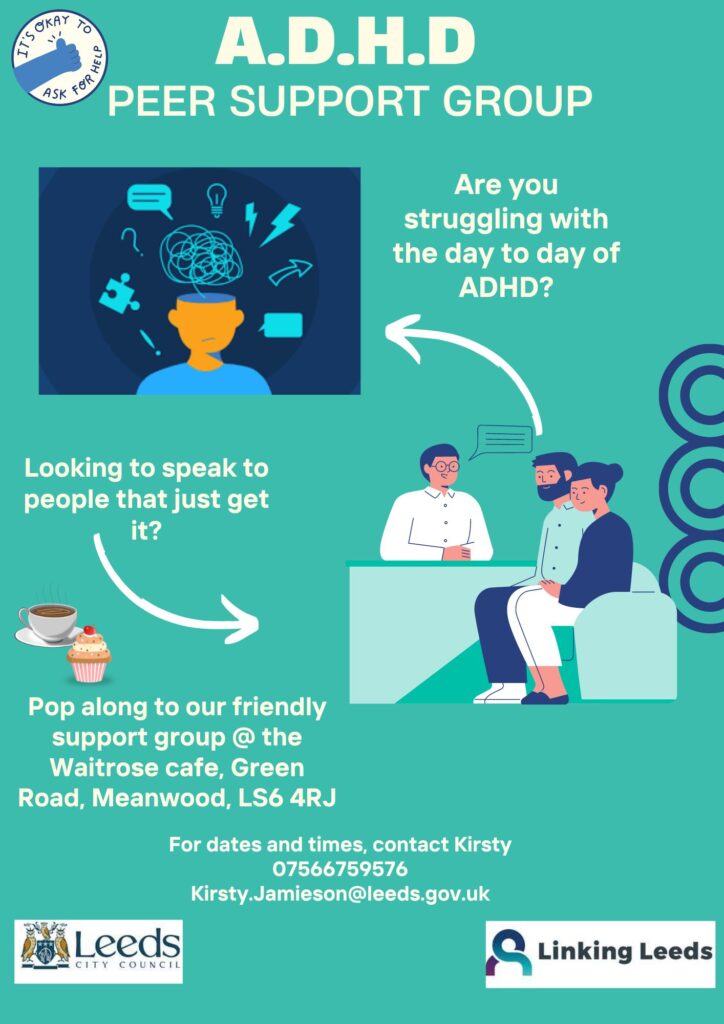Please see here for more information about ASD and the process of the referrals.
What is ASD?
Autism Spectrum Disorder (ASD) is a neurological and developmental disorder that affects how people interact with others, communicate, learn and behave. GP’s are unable to make a diagnosis of Autism. You will need to be referred for an Assessment with a Clinical Psychologist. Due to the increasing demand for Adult Autism services it is our aim as a practice to help you understand your options if you would like to be referred to an Autism specialist.
Patients Journey
1 GP appointment or an Occupational Therapist appointment
2 Secretaries or Clinician Signpost Patients to LSMP ASD website information
3 Complete AQ-10 Autism Spectrum Quotient Patients should have received a text with the email address to send the form back to
4 Patients MUST confirm their preferred Service Choice (see options on the drop down tab below)
5 Once the Secretaries have received both the completed form and service choice confirmation – this is passed back to the referring Clinician
6 Clinician’s then confirm if the referral is to go ahead and if so, provide referral letter / complete the relevant service form
7 Referral is processed and confirmation text is sent to the patient
Service Choices

Assessment and Medication
Face to Face Autism Assessment

RTC Assessment
Online-Only service

NHS
Right to Choose – Skylight Psychiatry
RTC Face to Face Autism Assessment
Variable clinic locations – Not in Leeds

RTC Assessment only
Online Only Service

RTC Face to Face Autism Assessment
Variable clinic locations

Psychiatry UK Right To Choose | Dr J and Colleagues
RTC Face to Face Autism Assessment
Variable clinic locations – Not in Leeds
What is the
Right to Choose pathway?
The RTC pathway, gives patients the right to choose their service provider for mental health & physical health conditions.
More information about the Right to Choose pathway can be found on the NHS England website Right to Choose – Information If the eligibility criteria are met, the NHS will fund your assessment.
Please note the pathway only applies to services in England. The pathway does not apply to services that are part of NHS Wales, Scotland, or Northern Ireland.
How do I request a
Right to Choose referral?
When referring via the NHS under the right to choose, a GP or Occupational Therapist appointment is the first step.
The Clinician will ask you questions relating to your symptoms to determine whether an assessment is clinically necessary.
The Clinician will need to review your AQ10 form. If you have not already done so, please download and complete:AQ-10 Adult june 20th 2012.pptx . Please return this to the email below.
If the Clinician determines that an assessment is required, you can advise them in the appointment that you wish to exercise your right to choose.
You MUST confirm your choice of Right to Choose service.
You can also confirm this by emailing lsmp.general@nhs.net or calling the secretaries on 0113 295 4488 using option 2
Private Autism Assessments
Patients can opt to have a Private Autism Assessment.
Please be aware – Patients will need to arrange/book their Private Autism Assessments with a service of their choice.
GP’s can provide a private referral letter if this is a requirement for services or health insurance purposes. It is important to note that if you undergo a Private Autism Assessment this will be self-funded.
You will have to cover the costs of your Autism Assessment and any follow-up appointments.
It is important to be aware that some Private Services Autism Diagnosis Reports are not recognised by the NHS.
This means, should you wish to change your care to the NHS, the NHS Specialist may request that you undergo a new assessment.
Specialist Autism Funding – Independent Funding Request (IFR)
In some cases, after a diagnosis, patients may wish to access specialist autism services, such as Autism Specific Counselling.
These services are not routinely covered by the NHS, and instead can be paid for privately, some services start at around £55, per hour session.
However, you may be eligible to apply for an Independent Funding Request (IFR) through the Leeds CCG commissioning group, if your circumstances meet the criteria for exception.
The process of applying for funding begins with your GP, who will first discuss your request, current diagnosis, and suitability for funding. If it decided to proceed with an IFR request, the GP will then complete the required paperwork.
It is usually requested that you supply a supporting statement, regarding your personal circumstances, as this can support with an application. The GP will then send the information to the IFR panel for consideration.
The response usually takes about 6 weeks, so a full request, including GP time and appointment could take up to 8 weeks to complete.
The ICB will then write to the GP and confirm whether funding has been granted or declined. We will inform you of the outcome in either case.
If successful, the GP will make an appropriate referral for counselling to one of the approved providers, such as Specialists Autism Service.
Medication
Whilst there is no specific medication for Autism. Medication can be prescribed for patients experiencing other mental health conditions such as anxiety, or depression when clinically appropriate and discussed with a health care professional. If you feel you need support for a mental health problem, please contact the practice for support.












